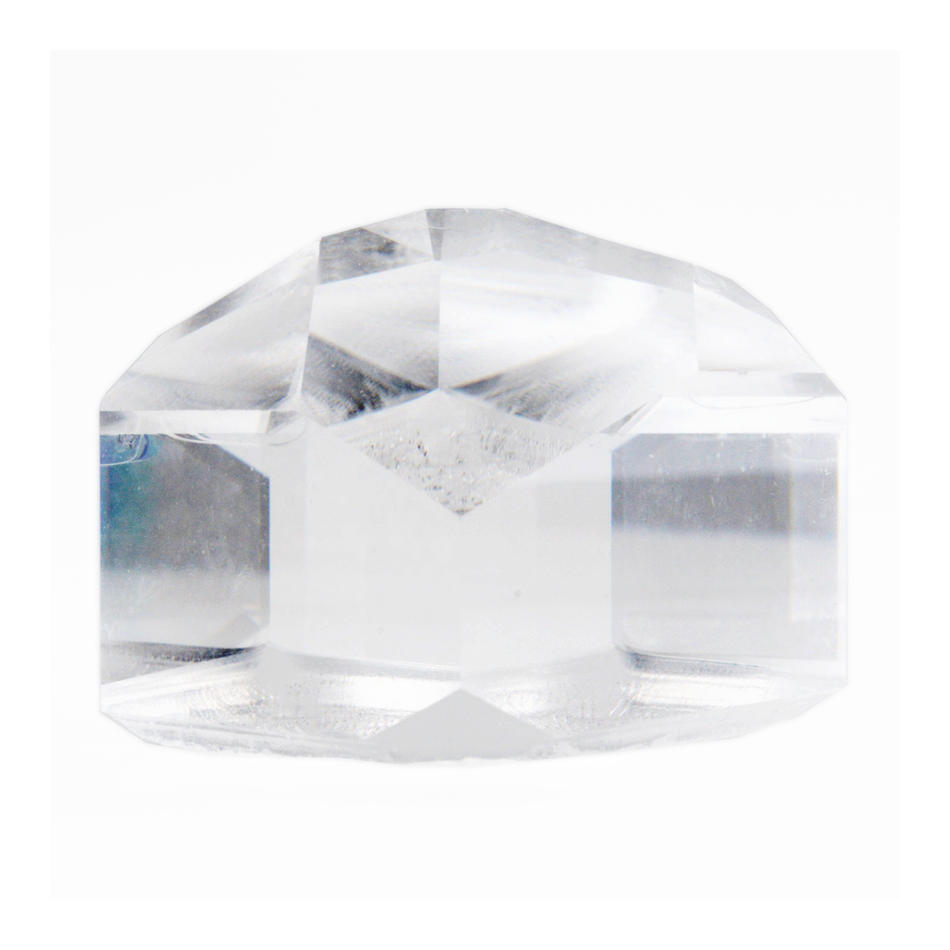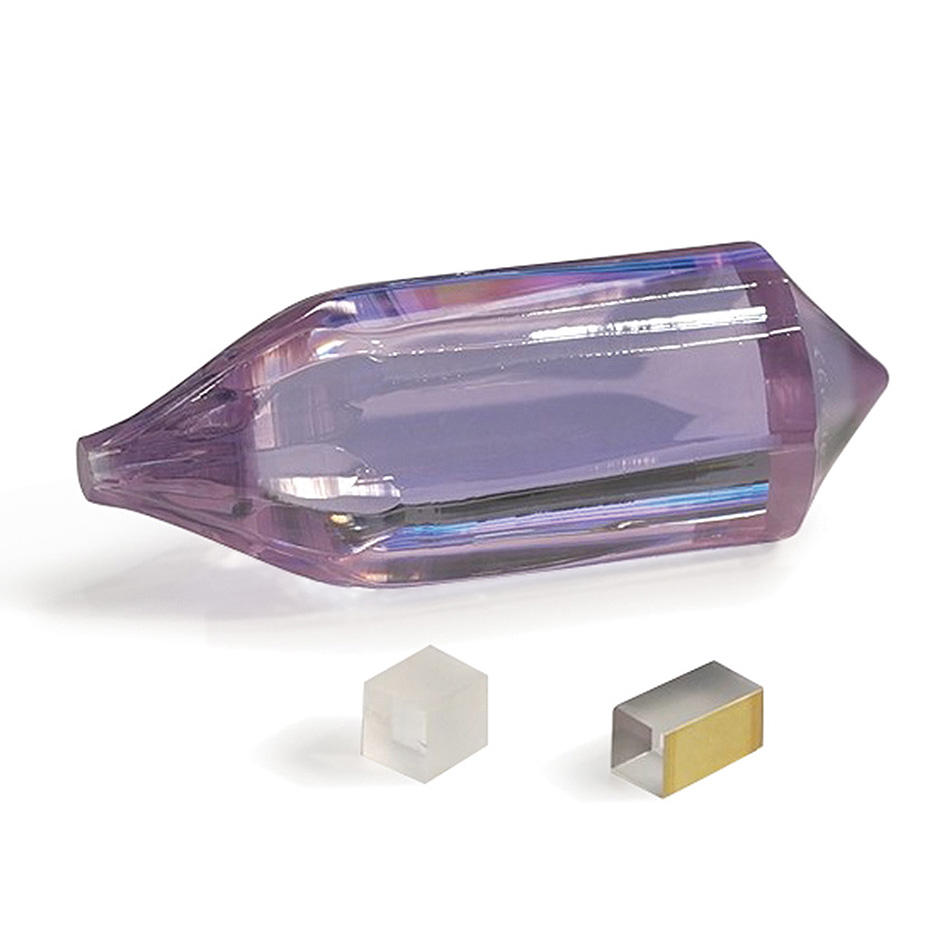Crystals Power Medical Lasers
Explore how gain and nonlinear crystals drive laser-based medical treatments and diagnostics.
July 01, 2024 by Coherent
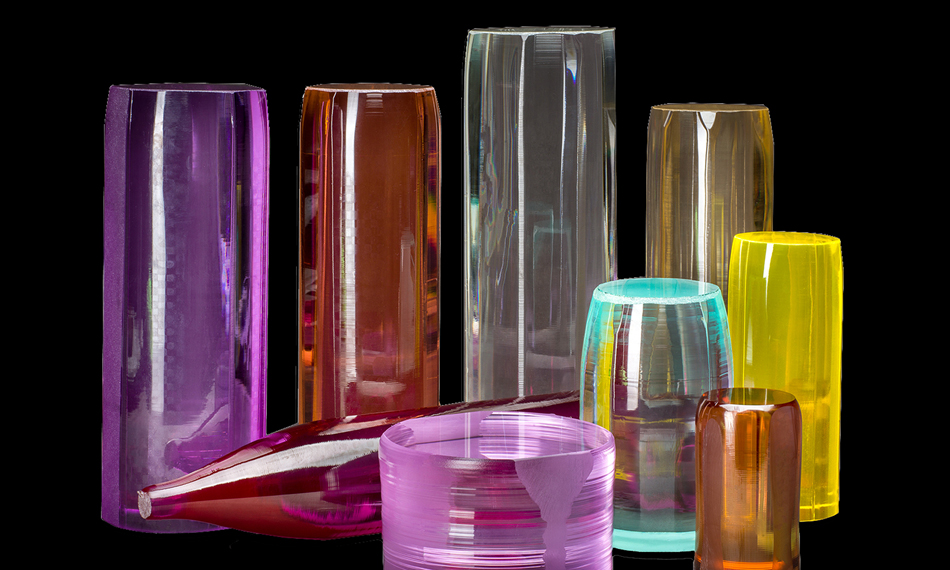
Optical crystals – the heart of medical lasers–transform light into precise tools for advanced treatments and diagnostics that elevate individuals' quality of life.
Crystals are the backbone of modern medical laser technology. These precisely engineered materials are indispensable for generating and controlling the laser light utilized in multiple medical applications, from noninvasive cosmetic procedures to life-saving surgical interventions.
Crystals convert electrical energy into highly focused—and intense—laser beams, which can be precisely tailored to target specific tissues, structures, or even individual cells within the body.
Without crystals' level of precision and control, medical lasers would lack the power, stability, and versatility needed to perform the delicate procedures transforming the face of healthcare today.
Medical lasers, however, use a range of optical crystals to generate laser light and modify the laser’s wavelength -- and this blog is focused on discussing the details and benefits of the various types of crystals.
Gain and Nonlinear Crystals
Gain crystals—the most commonly used—act as the heart of the laser, converting energy from light sources (like lamps or diode lasers) into focused laser beams. These crystals intensify or amplify the laser light, making it powerful enough for a wide range of Life Science applications.
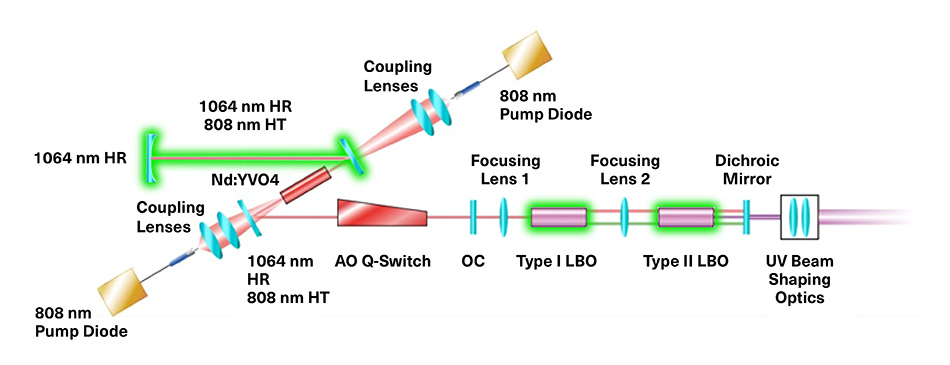
An extra-cavity UV DPSSL example highlighting crystal integration.
Nonlinear crystals—a second type of crystal—are employed for more specialized treatments and techniques with specific wavelength requirements, such as precise dermatological procedures targeting specific structures within the skin. These crystals will further transform the laser beams, doubling or tripling their frequency through harmonic generation processes. Harmonic conversion crystals modify a laser’s wavelength to either a half—second harmonic generation (SFG) or a third—third harmonic generation (THG) of its original (“fundamental”) wavelength.
Gain and nonlinear harmonic crystals are the fundamental players in modern medical laser technology.
Nd:YAG Gain Crystals
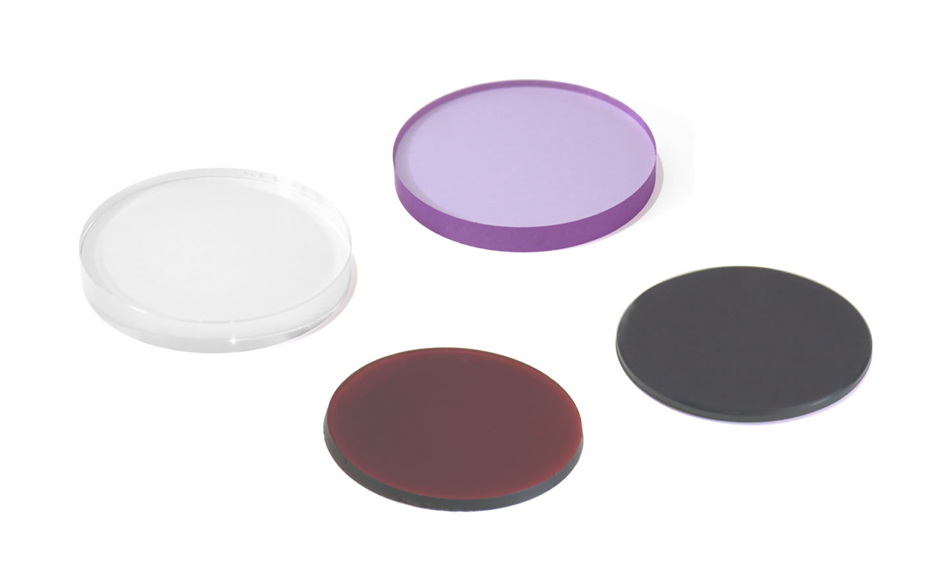
Harnessing the power of Nd:YAG and Nd:YVO4 laser crystals, life science innovators push boundaries in dermatology, ophthalmology, and dentistry using 1064 nm near-infrared light in cutting-edge medical treatments.
Neodymium-doped crystals and fibers are used in many lasers where they generate a near-infrared fundamental wavelength around 1064 nm. The two most common crystals are Nd:YAG where the host crystal is yttrium aluminum garnet, and Nd:YVO4 where the host crystal is yttrium vanadate. Medical laser technology relies on YAG and YVO4 as critical components. YAG's inherent properties enable the generation of high-energy pulses, while YVO4 assists by facilitating elevated repetition rates and high average power output.
So where are these lasers used in medicine? In dermatology and aesthetics, Nd:YAG lasers are used for tattoo removal, hair removal, treatment of pigmented lesions, and skin rejuvenation. In ophthalmology, Nd:YAG lasers are employed in certain eye surgeries to treat various eye conditions, including posterior capsular opacification after cataract surgery and glaucoma. And in dentistry, these lasers are used for procedures such as removing tooth decay, gum contouring, and dental surgeries.
SHG Crystals – KTP, LBO, BBO
The fundamental 1064 nm from Nd:YAG lasers is sometimes converted to second harmonic green (532nm) output using SHG crystals. Several different nonlinear optical crystals can be used for SHG of Nd:YAG lasers. They are typically referred to using 3-letter acronyms instead of their somewhat cumbersome full names. The three most common SHG crystals for Nd:YAG—Potassium Titanyl Phosphate (KTP), Lithium Triborate (LBO), and Beta-Barium Borate (BBO)—are categorized based on their nonlinear optical properties that facilitate efficient frequency doubling of Nd:YAG lasers.
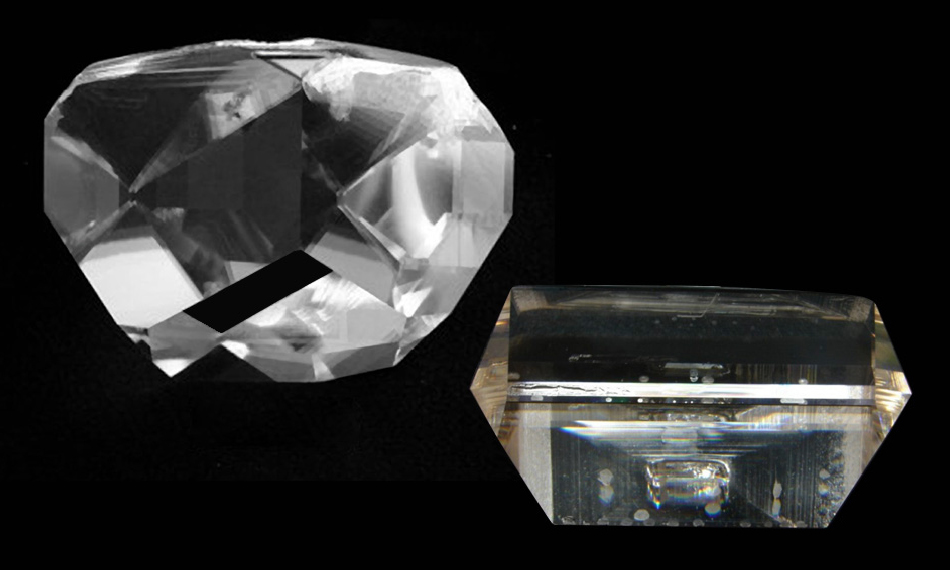
Precision-cut KTP, LBO, and BBO crystals enable efficient second harmonic generation, converting infrared Nd:YAG laser light to powerful green output at 532 nm, enabling visible wavelength applications. KTP, LBO, and BBO crystals–with their birefringent properties–enhance second harmonic generation by perfectly aligning fundamental and doubled frequencies for optimal conversion in compact, precision-designed units.
These nonlinear crystals all exhibit a property known as birefringence, which allows the phase-matching of the fundamental and the second harmonic waves to occur efficiently. This ensures that the fundamental and second harmonic waves propagate in phase and the conversion efficiency is maximized.
The choice of nonlinear crystal depends on various factors such as the desired wavelength, efficiency of conversion, optical properties, damage threshold, and other specific requirements of the laser system.
Green (532 nm) Nd:YAG applications
The adaptable nature of green (532 nm) Nd:YAG lasers has led to their widespread utilization across a diverse spectrum of medical applications. In dermatology, they are employed in procedures like vascular lesion treatment, where the green wavelength is absorbed by hemoglobin in blood vessels, effectively targeting and treating vascular lesions, port-wine stains, and certain types of birthmarks.
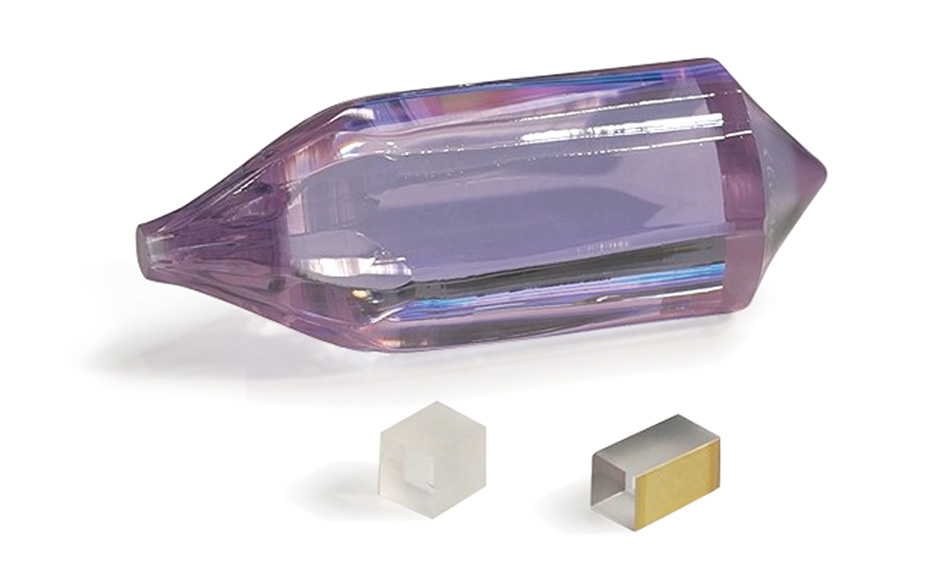
Green 532 nm Nd:YAG lasers, driven by the absorption of coherent green light by tissue pigments, offer solutions for vascular lesion treatment, tattoo removal, and enhanced imaging.
They are also useful in ophthalmology. This includes treatment of certain retinal conditions and ocular surgeries. In cosmetic medicine, the green light is sometimes used in laser hair removal for people with lighter skin tones and darker hair as it's absorbed by melanin in the hair follicles. It is also a useful laser wavelength for breaking down the ink particles in tattoos, especially for green, blue, and black pigments. And we should also mention that green Nd:YAG lasers are sometimes used in photoacoustic imaging techniques that combine optical and ultrasound imaging, enabling visualization of tissues for diagnostic purposes.
Er:YAG Laser Crystals
Lasers based on erbium-doped gain crystals are also widely used in medicine, particularly Er:YAG (Erbium-doped Yttrium Aluminum Garnet). These lasers emit at 2940 nm, which is in the mid-infrared and is strongly absorbed by water and hydroxyapatite (a component of teeth and bones). These lasers are therefore known for their precision and minimal damage to surrounding tissues.

Er:YAG laser crystals–emitting at 2940 nm–facilitate precise and minimally invasive interventions in dentistry, dermatology, ophthalmology, and surgery.
Medical applications of erbium lasers include several dental procedures. In dental caries removal, the selective absorption by hydroxyapatite allows for minimal removal of healthy tooth structure, making it suitable for cavity preparation. Soft tissue applications include gum contouring, periodontal treatments, and gingival sculpting. Erbium lasers also get used in root canal treatments – to clean and disinfect the root canals.
In dermatology, Er:YAG lasers are effective in treating wrinkles, scars, and skin irregularities by ablating the superficial layers of the skin to promote collagen remodeling and rejuvenation. They are sometimes used to target and remove pigmented lesions, such as age spots and freckles.
Holmium-Based Lasers
Lasers based on holmium-doped crystals – particularly Chromium, Thulium, Holmium, doped YAG (CTH:YAG) – are another important type of medical laser that emits around 2100 nm. These lasers are used mainly in urology, particularly for the treatment of urinary stones (kidney stone, ureteral stones, and bladder stones) by a fragmentation process called lithotripsy. This breaks these stones into smaller pieces that can be naturally passed or extracted.
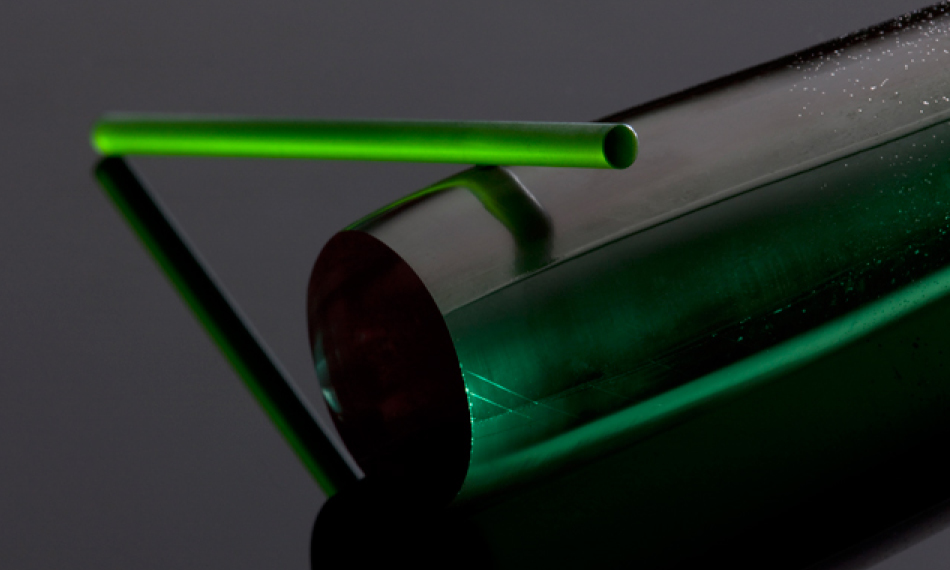
Holmium-doped YAG crystals power medical lasers that fragment urinary stones, precisely remove prostate tissue, and endoscopically address gastrointestinal conditions, minimizing complications in urology and gastroenterology procedures.
Lasers based on holmium crystals are often also used in treatment of Benign Prostatic Hyperplasia (BPH). A common procedure here is Holmium Laser Enucleation of the Prostate (HoLEP) for the treatment of BPH, which enables precise tissue removal while minimizing bleeding.
And lastly, holmium lasers are sometimes used for endoscopic procedures in the gastrointestinal tract, primarily for treatments involving strictures, tumors, or other abnormalities.
Nd, Er, and Ho-Doped Fibers
Material compatibility is imperative with the industry's shift to fiber-based laser architectures. Manufacturers now focus on producing gain fibers using the same rare earth elements—Nd, Er, Ho, and others—traditionally found in laser crystals. Using compatible materials ensures optimal alignment of optical properties between the crystals and fibers, maximizing the efficiency, output stability, and performance of the entire laser system.
The Coherent Advantage
It’s not hard to argue that crystals are one of the most critical components of life sciences diagnostics and medical lasers since they create laser light and transform the wavelength when necessary. And in areas like precision cancer surgery, these lasers can literally represent the difference between life and death. That’s why it’s so important to choose the right crystals and the right crystal manufacturer.
Coherent is a market leader in supplying all classes of laser crystals in custom shapes and sizes—like cylindrical rods and rhomboid slabs—used in medical lasers, as well as many other types of optical crystals. With decades of experience and over 400 growth stations across sites globally, we bring an important combination of advantages that underpins this success.
Coherent is the world’s most vertically integrated photonic company, making everything from raw materials like these laser crystals, to complete lasers and specialty laser-based machines. This gives us a unique perspective as both a manufacturer and user of optical components – from emphasis on quality and process control to on-time shipping schedules.
We also have incredible technical breadth. In the specific area of laser crystals, this means we offer an unparalleled selection of laser crystals. We fully understand the relative merits of all these materials and if you’re building medical lasers, we can guide you to the very best solution for your application without any technically limited bias.
With decades of experience growing crystals by every type of commercial process, we understand the importance of QA and metrology. Growing crystals is rather easy. Growing laser-quality crystals with long lifetimes is not. With our proprietary knowledge, our emphasis on quality, and our comprehensive application of metrology tools, Coherent crystals deliver better performance and extended lifetimes for life sciences instrumentation.
In this era of global supply chain uncertainties, we also have the practical advantage of producing all these crystals at several facilities in the US.
Learn more about Coherent crystals and Coherent solutions for medical applications.

